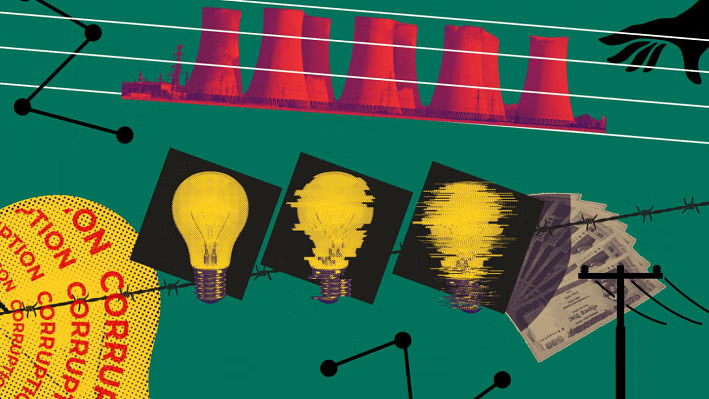Private sector losing edge for lack of uninterrupted quality energy: DCCI

Bangladesh's private sector is lagging behind in production due to the lack of uninterrupted quality energy and power supply, which is hampering the country's competitiveness in the international export market, Dhaka Chamber President Taskeen Ahmed said today.
Regular implementation of energy audits in industrial units is now a must, and academia should be involved in sector-wise industry research and necessary 'industry mapping', he added.
Considering the current geopolitical situation, Bangladesh's private sector is under considerable pressure, he said.
Ahmed made the remarks at a discussion jointly organised by the Dhaka Chamber of Commerce and Industry (DCCI) and the South Asia Network on Economic Modeling (Sanem) on "Energy efficiency in the industrial sector of Bangladesh," held at the Dhaka Chamber auditorium in the capital today.
There is still no specific government action plan focused on energy efficiency, even though an Energy Efficiency and Conservation Master Plan was formulated in 2016 and an Integrated Energy and Power Sector Master Plan was developed in 2023, said Selim Raihan, executive director of Sanem.
Therefore, the issue needs to be considered with due diligence, he added.
He noted that definitional and conceptual differences regarding energy efficiency exist across various sectors of the country. Moreover, Raihan pointed out significant barriers in the extraction and supply of the country's energy resources.
It should be investigated whether the planned initiatives on energy efficiency have been implemented, what kinds of incentives have been provided in the industrial sector, and how effective they have been, he said.
He also emphasised the need to achieve technological advancement in this sector.
At the event, Sanem delivered a presentation on energy efficiency in the industrial sector, highlighting the current state of efficiency, the use of necessary technologies, standardised measurement tools, and how interrupted energy supply is undermining overall performance.
Mohammad Wahid Hossain, chairman of the Bangladesh Energy and Power Research Council, said there is a communication gap in energy-related information, leaving the private sector often unaware of many government services and initiatives.
The financial capacity of Bangladesh's private sector has increased significantly, so it should step forward to finance energy-related research activities, he said.
"Financing these activities will enable them to use new technologies, increase consumer awareness, and above all, formulate a sustainable, business-friendly energy plan," he added.
Asif Ibrahim, former president of DCCI, said industries, especially in the SME sector, are severely affected in their production activities due to energy shortages.
He stated that energy efficiency in the industrial sector could be improved if the existing duty on machinery imports is reduced.
Currently, solar panels have been installed in about 250 readymade garment factories, which is playing a significant role in the use of alternative energy in the industry, he said.
Bangladesh needs 3,800 million cubic feet of gas daily, whereas Petrobangla can supply only 2,900 million cubic feet, said Md Imam Uddin Sheikh, general manager of Petrobangla.
If the private sector wants quality, uninterrupted gas supply, they should move into industrial zones, as it is easier for energy distribution companies to supply within such zones, he noted.
However, industries are currently scattered and unplanned, which is a major bottleneck, he added.
He also stated that supplying power and energy to industries is a government priority.
Mohammad Ahsanul Amin, general manager of Bangladesh Petroleum Exploration and Production Company Limited (BAPEX), said it cannot be denied that the industrial sector is not receiving sufficient energy.
To ensure energy availability, BAPEX has initiated a plan to drill 100 wells across the country by 2030 to enhance local supply capacity.
Shamim Ahmed, president of the Bangladesh Plastic Goods Manufacturers and Exporters Association, urged the government to allow and incentivise the private sector to import LNG and carry out the regasification process.
"We need to reduce dependency on imported LNG and go for massive local offshore and onshore gas exploration."
Mansoor Ahmed, senior vice president of the Bangladesh Knitwear Manufacturers and Exporters Association, said industries are deprived of reliable electricity supply.
He stressed that improving energy efficiency is no longer optional—it is now a necessity.
Inamul Haq Khan, senior vice president of the Bangladesh Garment Manufacturers and Exporters Association, said the high cost of energy is one of the key barriers to establishing new industries in the country.
He mentioned that in the greater Gazipur industrial area, there is load shedding for at least 6–8 hours daily, causing entrepreneurs to bear an additional cost of Tk 4–5 lakh per day.
Moreover, delays in manufacturing are disrupting exports, and Bangladesh is steadily losing its global competitiveness, he added.
He pointed out that generating just 10 percent of energy from renewable sources could save up to 220 megawatts of power.
However, importers of solar and renewable energy equipment do not receive any duty benefits, which is hindering the desired level of expansion, he noted.
DCCI Vice President Md Salem Sulaiman and members of the board of directors were also present.



 For all latest news, follow The Daily Star's Google News channel.
For all latest news, follow The Daily Star's Google News channel. 

Comments